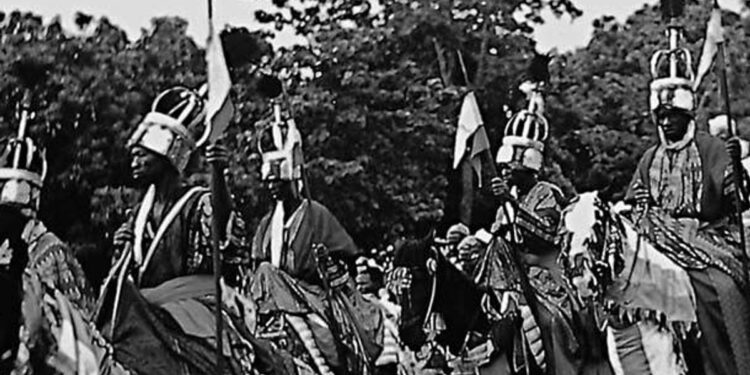Kanuri is an African ethnic group; they are the dominant element of the population of Bornu state in northeastern Nigeria and also found in large numbers in southeastern Niger.
The Kanuri developed a powerful state at the Sudanese terminus of the major trans-Saharan trade route through the Bilma oasis to Libya. This empire, called Bornu (or Kanem-Bornu), reached its zenith in the 16th century. The Kanuri have been Muslims since the 11th century and practice the Malikite code of Islamic law.
The Kanuri are sedentary hoe agriculturists, although almost all of the men practice some other occupation as well. The economy is complex, with commerce, transportation, and construction constituting the other main elements of the private business sector. Government and public-service jobs provide another major source of employment today; manufacturing and industry are still relatively unimportant.
The Kanuri language has the largest number of speakers of the Central Saharan Language Family, which has speakers from northern Nigeria to the Central Sudan. Kanuri is unrelated to Hausa, which is the most commonly spoken language in northern Nigeria. Most Kanuri can speak some Hausa.
The Kanuri diet consists of large quantities of millet, served either as porridge or as dumplings. A vegetable soup, also containing meat, groundnut oil, salt, and other condiments —especially red peppers—is poured over the millet. The diet is universal, but the soup contents vary according to socioeconomic class. Cooked foods are sold in the markets, and a wide range of canned foods are available to city dwellers. Goats and sheep are slaughtered for religious ceremonies. Islamic food taboos are observed.
Social relations in Kanuri society are generally patterned upon those of the idealized family, the most common being the father-son/superior-subordinate relation. A man’s prestige is based on the size of his household and the number of his patron-client relationships. His followers provide farm and household labor, support, and defense; in return, he provides food, clothing, bride-price, and possibly a bride, to each of them. Given that a man’s status increases or diminishes with that of his household, regardless of his position within it, there is a premium on loyalty to the master.



























































